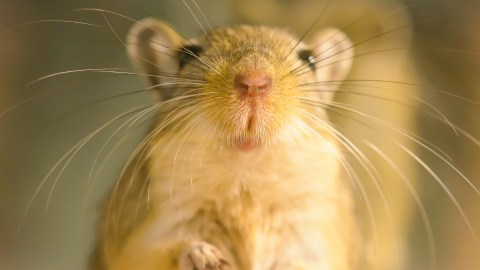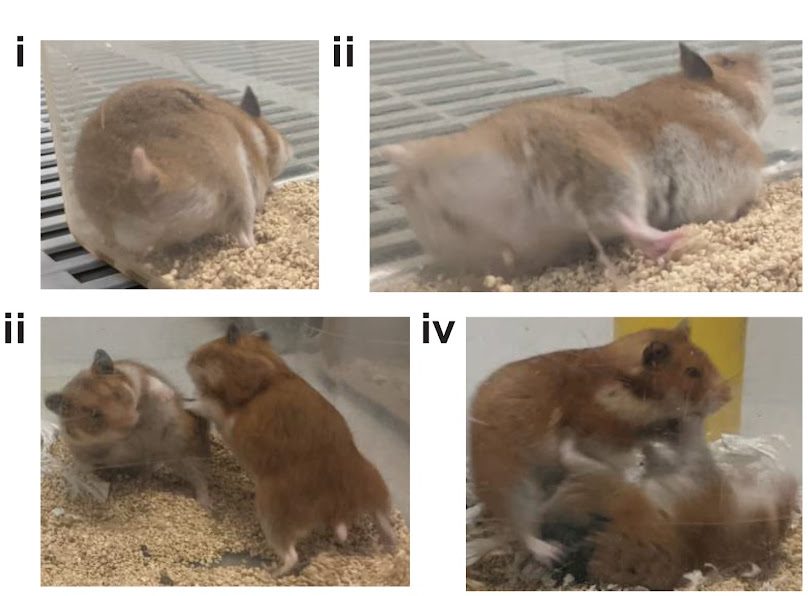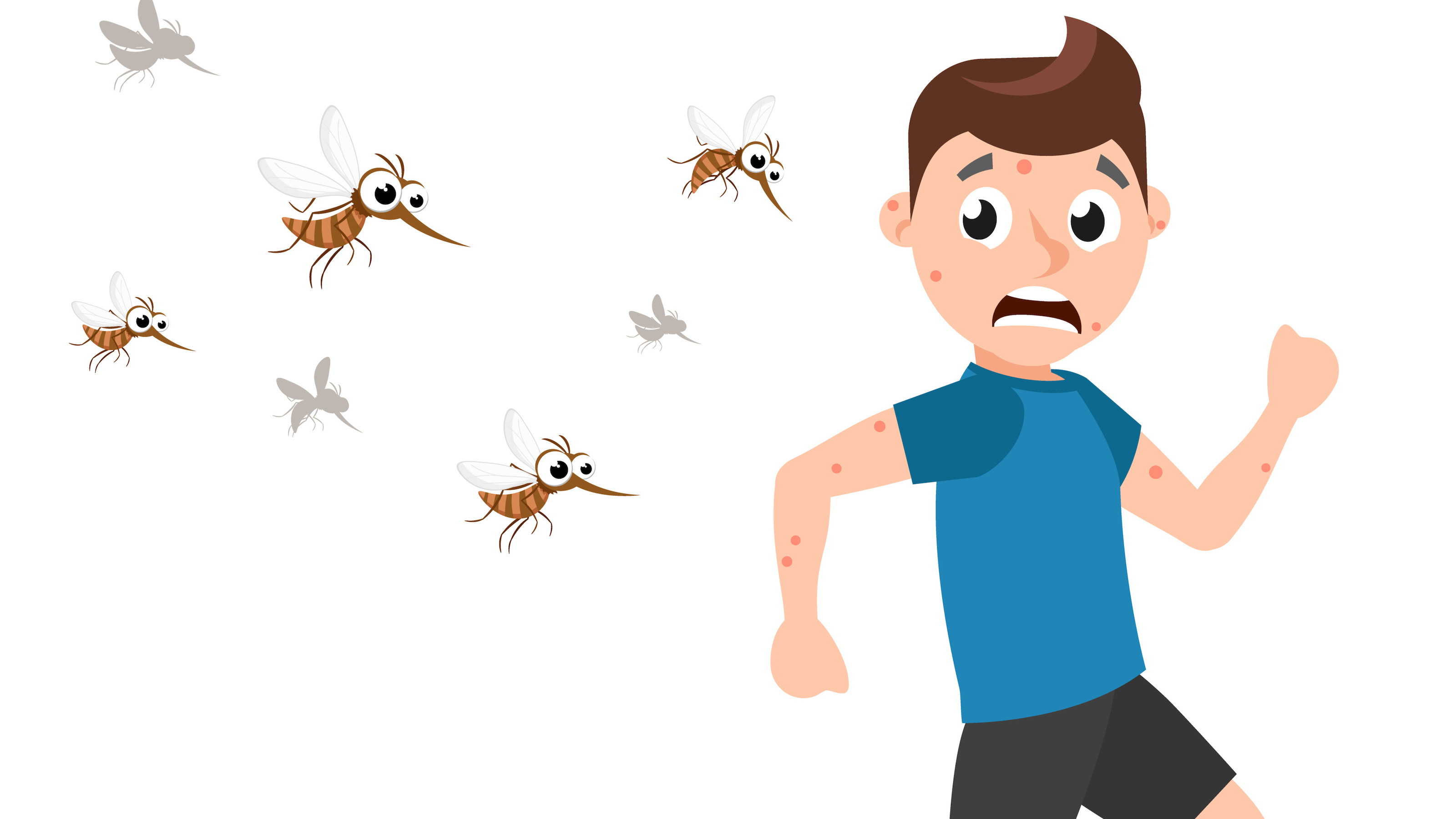Testosterone-injected gerbils become extra-cuddly, “super partners”

- Testosterone is widely studied in the context of aggressive, antisocial behavior; however, there is evidence that high testosterone levels promote prosocial behavior.
- Gerbils injected with testosterone while with their bonded mates were more cuddly and less aggressive to intruders.
- However, when those gerbils were injected again with testosterone in the presence of an intruder, they became aggressive, suggesting that testosterone’s effect on behavior depends on the social context in which it is experienced.
High levels of testosterone are generally associated with aggressive behavior and unpleasant personalities. However, a pair of scientists at Emory University suspected that testosterone gets a bad rap. After doping a few gerbils with the sex hormone, they discovered that testosterone promotes nonsexual, prosocial behavior within the appropriate context, according to their recent study in Proceedings of the Royal Society B.
“For what we believe is the first time, we’ve demonstrated that testosterone can directly promote nonsexual, prosocial behavior, in addition to aggression, in the same individual,” said Aubrey Kelly, a professor of psychology and co-author of the study.
Testosterone is widely studied in the context of aggressive, antisocial behavior. Still, there is evidence that high levels of testosterone drive prosocial behavior, especially status-seeking behaviors such as resilience during a competition or purchasing high-status items. Kelly and her husband / co-author, Richmond Thompson, hypothesized that an individual’s social context influences testosterone’s effects on an individual’s social behavior.
They tested their hypothesis on Mongolian gerbils, rodents that form lasting pair bonds and raise their pups together. Males can become aggressive during mating and in defense of their territory. However, they also have a softer side: They like cuddling with their pregnant partner. If testosterone drove only antisocial behavior, then doping up a male gerbil should end the cuddling business. First, however, Kelly and Thompson needed to play matchmaker.
Soiled bedding + Testosterone = Snuggly delight
Gerbils don’t like blind dates. So, to prepare the gerbils for a life of domestic bliss, Kelly and Thompson provided each male and female gerbil with the soiled bedding of their future beloved, hoping that this would make formal introductions go more smoothly. The next day, the scientists placed a male and female gerbil in a cage together and let them get to know each other. After five days of “will-they-won’t-they,” all the pairs had bonded.
Within a week after bonding, all the female gerbils were pregnant, and the male gerbils displayed the usual cuddling behaviors toward their partners. The researchers felt this was the perfect time to give the male gerbils a healthy shot of testosterone, expecting it would make them feel too macho for cuddling.
“Instead, we were surprised that a male gerbil became even more cuddly and prosocial with his partner,” said Kelly. “He became like ‘super partner.’” The testosterone-fueled gerbils spent almost three times longer lovingly investigating, cuddling, and grooming their partners compared to control gerbils.
A friendly host or an aggressive defender?
Snuggling with your boo is a safe, comfortable social situation, so the researchers wanted to determine how these testosterone-dosed gerbils would respond to a more volatile affair. A week after the initial injection, Kelly and Thompson prepared for a gerbil-on-gerbil showdown. Typically, a resident male will chase and attack an intruder, and considering these resident gerbils were riding the high of testosterone, the researchers expected the worst. They removed food, water, and the female partner from the cages of the male gerbils. Then, they cautiously introduced an unknown male.
The researchers were prepared to terminate the test and provide veterinary care immediately if an injury occurred to any animal. However, the resident males that had previously been injected with testosterone were more interested in sniffing and socializing with the intruder. However, the friendly behavior changed abruptly when the resident males were given another testosterone injection.
“It was like they suddenly woke up and realized they weren’t supposed to be friendly in that context,” Kelly says. Luckily, no gerbils were harmed.
Social context matters
The researchers theorize that social context influenced the effects of testosterone. Because the gerbils experienced the first surge in testosterone in a safe social environment, the testosterone primed them to respond more prosocially. That effect remained even when the context changed and an intruder entered the cage. However, the second testosterone injection rapidly prompted them to reevaluate their social situation and adjust their behavior to become more aggressive, as appropriate to the context of a male intruder.
Kelly and Thompson conclude that testosterone helps animals rapidly pivot between pro- and antisocial responses to accommodate changes in the social environment. Human behaviors are arguably more complex than those of gerbils. Still, the researchers hope their findings provide a basis for studying how humans adjust their behavior in response to social context.
“Our hormones are the same, and the parts of the brain they act upon are even the same,” said Thompson. “So, learning how hormones like testosterone help other animals adjust to rapidly changing social contexts will not only help us understand the biological nuts and bolts that affect their behavior but also predict and ultimately understand how the same molecules in human brains help shape our own responses to the social world around us.”





